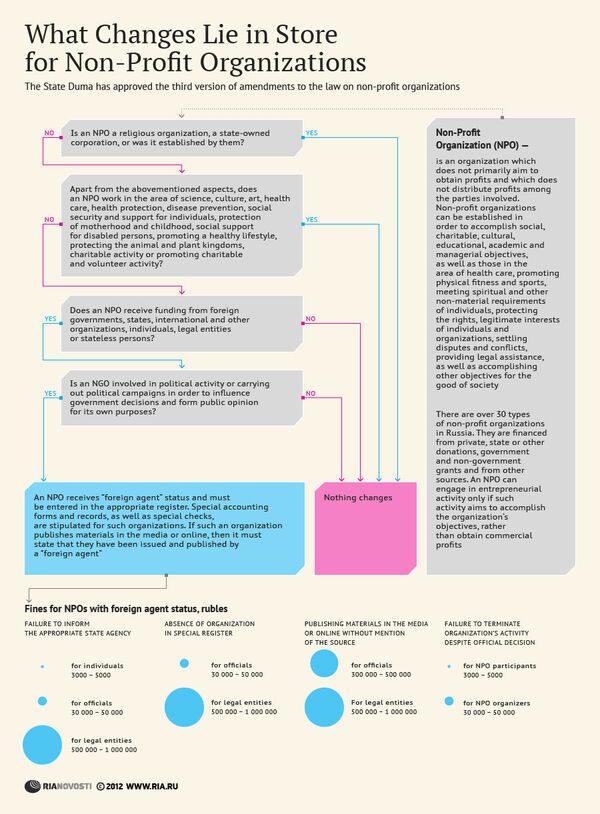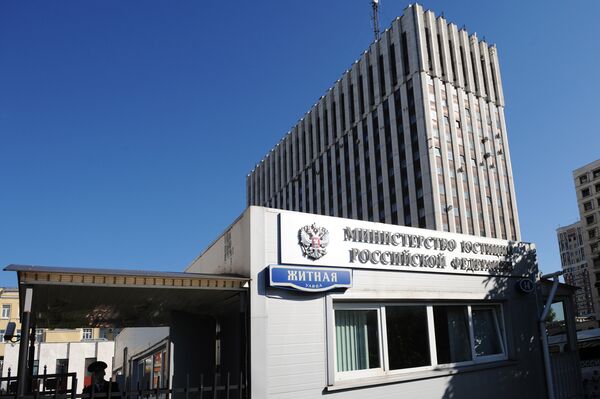MOSCOW, September 3 (RIA Novosti) – Russia’s Human Rights Commissioner has lodged an appeal against some provisions of a controversial law which brands NGOs funded from abroad and engaged in political activities as foreign agents, Kommersant daily reported Tuesday.
“The document's provisions containing such definitions as 'foreign agents' and 'political activities' are politically and legally ambiguous,” Vladimir Lukin said, according to Kommersant.
Lukin’s appeal was submitted to the Constitutional Court on August 30 and must be considered within three months, according to the newspaper. The Court also registered a complaint filed by a group of Russian human rights activists over the law on August 23.
That complaint was filed by the Kostroma Center for Civic Initiatives Support which was fined last May for breaching the law. The organization maintained in its appeal to the Constitutional Court that the unclear definition of political activity in the law led to ambiguity and consequently to abuse of or ignorance of constitutional rights.
A federal law was passed last November requiring all NGOs engaged in political activity, and receiving finance from abroad, to register as a "foreign agents," or face fines of up to 500,000 rubles. In February, eleven Russian NGOs, including the Moscow Helsinki Group, lodged a complaint with the European Court of Human Rights (ECHR) protesting the law.
Inspections of NGOs began in late March 2013, when the Justice Ministry announced it would check that these organizations' activities corresponded with the objectives of their charters and Russian legislation. Up to 2,000 NGOs in Russia have been checked by prosecutors and other officials, according to some estimates.
State officials have come under fire from NGOs, international human rights groups and Western governments for carrying out unannounced and lengthy inspections. Some NGOs with apparently apolitical activities such as polling organizations, public health promotion or supporting wildlife conservation have also complained of being checked and told to register as “foreign agents.”
The Russian government maintains the law is necessary for preventing foreign interference in Russian political life.



